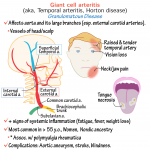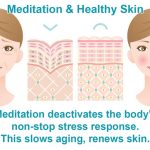Table of contents
How to Turn Back Time with a Good Night’s Sleep
We often focus on diet and exercise when aiming to slow down the aging process. However, many people overlook the importance of sleep and its impact on anti-aging, even though research shows it plays a vital role in protecting our skin and overall health. Here we explore the connection between sleep and anti-aging, and realise the benefits of a restful night’s sleep.
What is Anti-Aging?
First and foremost, it’s important to understand what anti-aging actually is. Anti-aging covers anything related to living longer and reducing the signs of aging, such as wrinkles and skin damage. While it’s impossible to stop the aging process, there are ways to reduce the effects aging has on the body. Sleep is one of the most important elements of our health, and many don’t realise the impact this has on the aging process.
The Benefits of Sleep
Quality sleep is essential for cell regeneration, hormonal balance, cognitive functioning and ultimately, anti-aging. During sleep, the body produces growth hormones which are essential for maintaining and rebuilding tissue in the body, and repairs the damage of the day. Good sleep also improves the functioning of the immune system, and can help flush out harmful toxins more efficiently.
Getting Enough Sleep
A good night’s sleep ensures that the body and mind have time to recuperate and recharge. The recommended amount of sleep for adults is 7-9 hours a night. With busy routines and tight deadlines, it’s easy to become stuck in a cycle of not getting enough sleep. To combat this, establishing a regular sleeping pattern can be beneficial. Incorporating calming habits before bed can help improve our sleep quality, such as reading a book, stretching, or drinking a hot herbal tea.
The Effects Of Poor Sleep
When we don’t get enough sleep, it can lead to a range of issues. Short sleep can increase the risk of inflammation, cognitive problems, and damage to skin cells due to an impairment of the body’s physiological regenerative process. It can also disrupt the production of hormones, including melatonin and cortisol, leading to mood swings and low energy. A lack of sleep can also disrupt the balance of collagen which makes up our skin and the overall skin structure, leading to premature wrinkles and a dull complexion.
How Sleep Improves Anti-Aging
Sleep is often referred to as “beauty sleep”, and there is a reason for this! Developing good sleep habits and focusing on quality sleep can improve anti-aging by:
- Reducing puffiness and dark circles around the eyes
- Evening out skin complexion
- Reducing wrinkles
- Increasing energy and alertness
- Building a stronger immune system
- Stabilizing mood changes
- Creating healthier skin cells
Final Thoughts
As we can see, getting enough sleep is a crucial aspect of a healthy lifestyle, and is necessary to slow down the aging process. It’s important to pay attention to our body’s needs and create a sleep routine that meets the recommended guidelines. Quality sleep helps reduce the effects of aging, so it’s worthwhile to prioritize our health and put in the effort for a good night sleep for better anti-aging!




